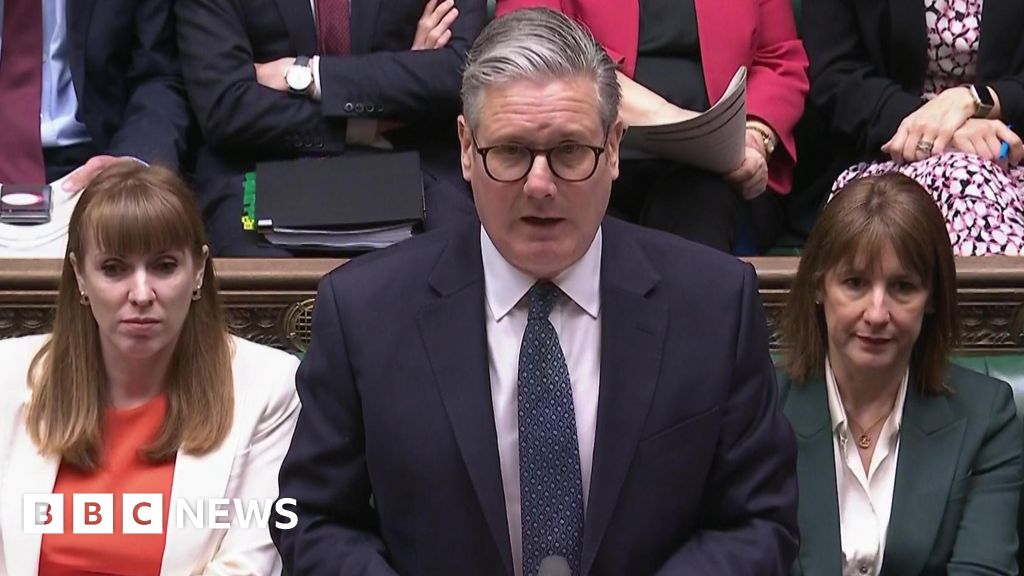French Far-Right Leader Slams Court's 'Politically Motivated' Election Blockade
Politics
2025-03-31 18:36:04Content

Marine Le Pen, the prominent far-right political leader, has vehemently condemned a recent judicial decision that prevents her from seeking elected office for five years. The ruling effectively derails her presidential ambitions for the 2027 election, a blow she views as a direct attack on her political future.
In a passionate response, Le Pen portrayed the ban as a politically motivated attempt to sideline her from the national political landscape. The five-year prohibition threatens to disrupt her carefully laid plans to challenge for the French presidency, a goal she has pursued with increasing determination in recent election cycles.
The controversial ruling has sparked intense debate about political persecution and the boundaries of judicial intervention in electoral politics. Le Pen, a polarizing figure in French politics, sees the decision as an extraordinary measure designed to marginalize her and her party's growing influence.
Her supporters have rallied around her, decrying the ban as an undemocratic maneuver that undermines the fundamental right of political participation. Le Pen herself remains defiant, suggesting that this setback will only strengthen her resolve and galvanize her political base.
Political Shockwaves: Marine Le Pen's Five-Year Electoral Banishment Sparks National Controversy
In the tumultuous landscape of French political dynamics, a seismic event has unfolded that threatens to reshape the future electoral trajectory of one of the nation's most polarizing political figures. The recent judicial decision targeting Marine Le Pen represents more than a mere administrative penalty—it signals a profound challenge to her long-standing political ambitions and the broader far-right movement in France.A Watershed Moment in French Political Warfare
The Judicial Verdict and Its Unprecedented Implications
The recent judicial pronouncement against Marine Le Pen transcends a simple administrative sanction, representing a strategic maneuver with potentially transformative consequences for her political career. By imposing a five-year prohibition on electoral participation, the French judicial system has effectively constructed a formidable barrier to her presidential aspirations, particularly targeting the critical 2027 presidential election. Le Pen's response to this judicial intervention has been characterized by defiance and strategic positioning. Her vociferous condemnation of the decision underscores not just personal frustration, but a broader narrative of perceived institutional persecution against her political movement. The far-right leader has consistently portrayed herself as a victim of systemic political marginalization, a rhetorical strategy that has resonated deeply with her supportive base.Historical Context and Political Landscape
Understanding this development requires a nuanced examination of Le Pen's political evolution. Her National Rally party has undergone significant transformation over the past decade, gradually shedding its more extreme rhetorical edges in an attempt to mainstream its political appeal. This judicial intervention potentially represents a critical inflection point in that ongoing process of political repositioning. The prohibition raises complex questions about democratic representation and judicial intervention in political processes. Critics argue that such a comprehensive electoral ban potentially undermines fundamental democratic principles of representation and electoral competition. Supporters, conversely, view it as a necessary mechanism to protect democratic institutions from potentially destabilizing political forces.Strategic Implications for French Far-Right Movement
The ramifications of this decision extend far beyond Le Pen's individual political trajectory. It signals a potential recalibration of power dynamics within the French far-right ecosystem. Younger, potentially more moderate figures within the National Rally might now see opportunities to assume leadership roles, potentially moderating the party's ideological positioning. Le Pen's response suggests she will not quietly accept this judicial decree. Her combative rhetoric indicates a multifaceted strategy of legal challenge, public communication, and continued political engagement through alternative channels. This approach demonstrates her political resilience and strategic acumen in navigating complex institutional landscapes.International and Domestic Political Reverberations
The international political community is closely monitoring these developments. The prohibition represents more than a domestic French political issue—it reflects broader global tensions between populist political movements and established institutional frameworks. Le Pen's situation resonates with similar challenges faced by right-wing populist leaders across Europe. Domestically, the decision has reignited intense debates about political legitimacy, judicial independence, and the boundaries of acceptable political discourse. It has created a complex narrative terrain where legal, political, and ideological considerations intersect in increasingly sophisticated ways.Future Trajectory and Political Adaptation
While the five-year electoral ban presents significant challenges, it would be premature to view it as a definitive political obituary for Marine Le Pen. Her political history demonstrates remarkable adaptability and an ability to transform apparent setbacks into strategic opportunities for narrative reconstruction and political mobilization. The coming months and years will be critical in determining how Le Pen navigates this complex political landscape. Her response will likely involve a multifaceted approach of legal challenges, media engagement, and continued ideological positioning within the French political ecosystem.RELATED NEWS
Politics

Clash at the Top: Trump Allies Break Ranks with Musk in Explosive OPM Email Showdown
2025-02-24 03:09:18
Politics

Billionaire Battle: Wisconsin Supreme Court Race Turns into High-Stakes Political Showdown
2025-03-08 11:00:00






